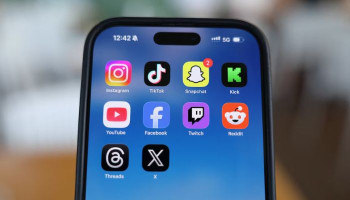
Microsoft has spotted a security vulnerability, dubbed as “Dirty Stream”, which is targeting Android application with its immense potential.
The cyber menace poses significant threat to the wellbeing of Android infrastructure and is potent enough to let someone take control of apps and steal users' personal data stored in the Android apps' databases.
The most malicious element at play are the Android apps that exploit and manipulate Android’s content provider system which is designed to ensure secure data exchange between different applications on Android devices.
Read more: Quote controls on Threads launched globally — Tightening users' content privacy
If the system is implemented with no heed while being utilised, it may prove good of an opportunity for exploitation. Microsoft’s researchers warned that incorrect use of “custom intents” — the messaging system that allows Android app components to communicate — might disclose the weak points of an app.
For instance, apps at risk may fail to properly check file names or paths, unwillingly providing malicious apps access to decently instill a malware morphed as a legitimate and necessary file.
What is Dirty Stream flaw and what it does?
The Dirty Stream flaw could be utilised by an attacker to deceive a susceptible application into altering vital files within its private storage area. This manipulation opens the door to complete control over the application's actions for the attacker, potentially leading to unauthorised access to sensitive user data or the interception of private login credentials.
Two examples of the app that stand in the red light are Xiaomi’s File Manager application and WPS Office, with over one billion installations of the former one and about 500 million installs of the latter one. Both of the companies have acknowledged issues in their software.
Dimitrios Valsamaras, a researcher at Microsoft, highlighted the substantial risk posed by Dirty Stream, mentioning the discovery of numerous vulnerable applications on the Google Play Store, accounting for over four billion installations in total.
In response, Google has taken measures to mitigate future vulnerabilities by updating its app security guidelines, with particular attention to addressing common flaws in content provider designs that are prone to exploitation.
How to protect against Dirty Stream security vulnerability
While developers work to identify and fix vulnerable apps, Android users should prioritise staying updated on app releases to swiftly apply patches. Moreover, it's crucial to only download applications from the official Google Play Store and be cautious when downloading from unofficial sources as they might entail malicious software.
















